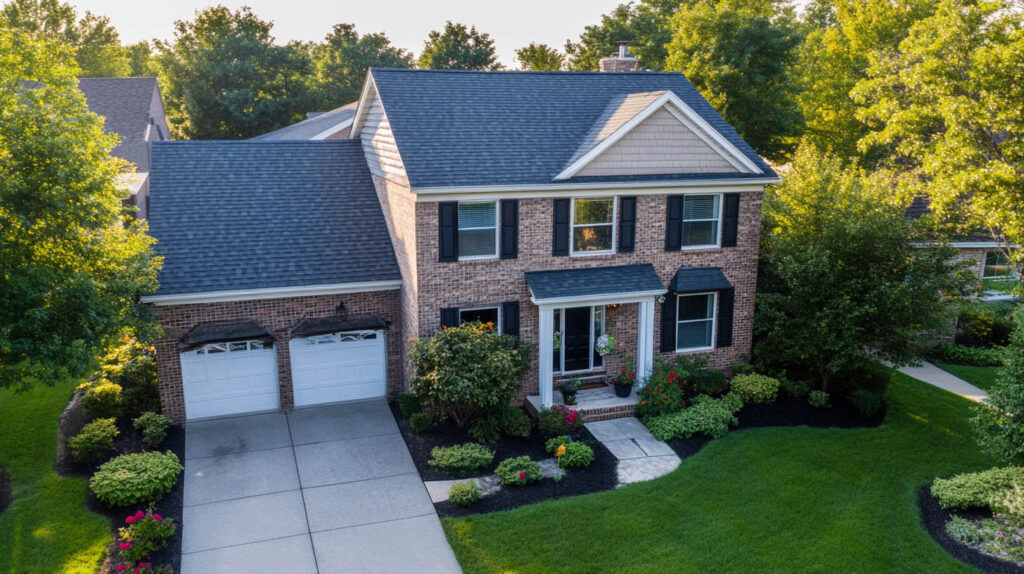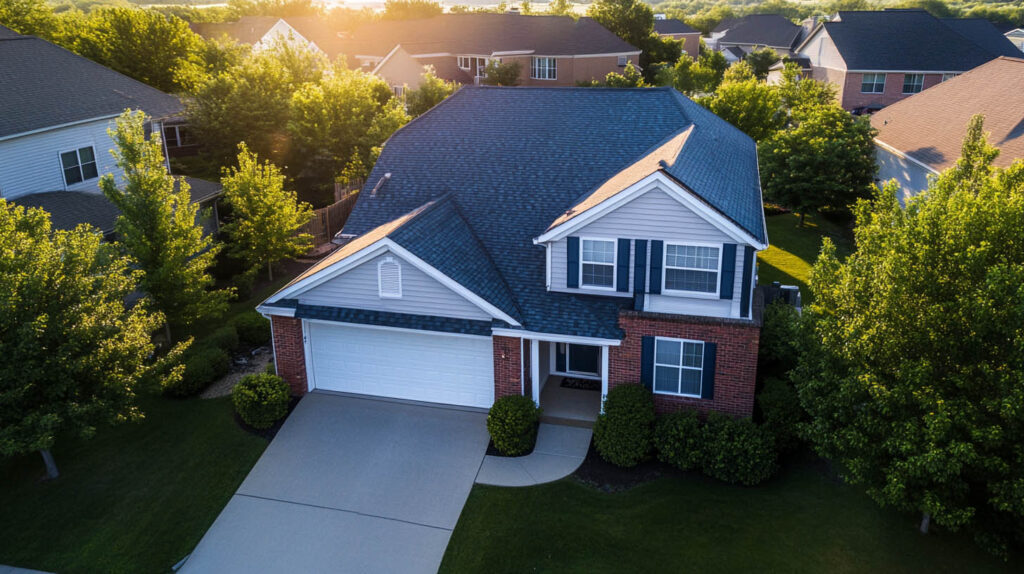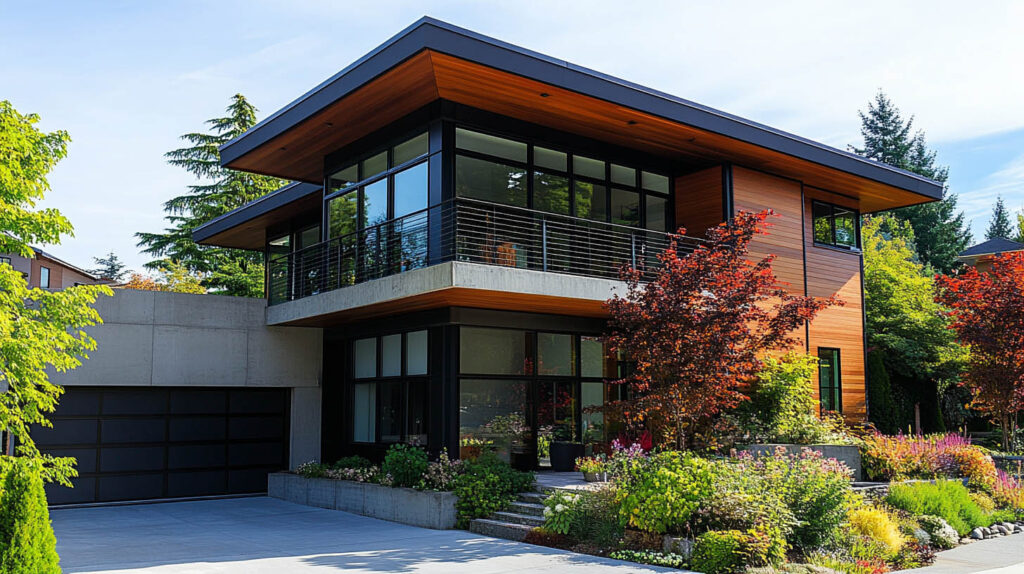Should I tell homeowners insurance I got a new roof

Navigating the intricacies of homeowners insurance can be a daunting task, especially when you’ve invested in a new roof for your home in Ocala, FL, impacting the cost of your new roof. Many homeowners find themselves pondering a crucial question: Should you inform your homeowners insurance about your new roof? This comprehensive guide aims to address this question, shedding light on the importance of transparency with your insurance provider. We’ll explore various aspects, including the impact on premiums, policy adjustments, and maximizing insurance benefits.
The Importance of Informing Your Insurance About a New Roof
Having your insurance company informed about a new roof is crucial. It directly impacts your premiums and coverage level, ensuring you have appropriate protection in case of damage. This information also reflects your home’s increased value and the proactive steps you’re taking to maintain it. Being transparent about upgrades like a new roof establishes trust with your insurer and streamlines any future claims process, safeguarding your investment effectively.
The Impact on Premiums and Coverage
Informing your homeowners insurance about a new roof and prioritizing regular maintenance can impact your premiums and coverage significantly. A new roof may qualify you for discounts or lower premiums due to increased home protection and decreased risk of claims. It can also enhance your coverage by ensuring your roof is valued accurately in case of damage. By updating your insurance company about roofing replacement, you can potentially optimize your policy to better reflect the improved value of your home.
Contact UsHow a New Roof Reflects on Your Home’s Value
When you invest in a new roof, you not only enhance your home’s protection but also boost its overall value. A new roof adds curb appeal, signifies proper maintenance, and can increase your home’s market price. A well-maintained roof indicates to potential buyers that the property is cared for and in good condition, positively impacting its resale value. In the realm of insurance, a new roof can also result in cost savings and improved coverage options, which is always a good idea, aligning with the objectives of homeowner’s insurance policies.

Your Partner in Roof Replacement
Brehm Roofing & Restoration stands out as your trusted ally among roofing companies for smooth replacement processes. With a focus on quality and community, we are proud Owens Corning Platinum Certified Contractors ensuring top-notch service. Our expertise in handling insurance processes and inspections guarantees a stress-free experience for you. By choosing us, you benefit from professional roofers who deliver excellence in every project, safeguarding your investment and enhancing your home’s value. Trust us for all your roofing needs.
Why Choose Owens Corning Platinum Certified Contractors
Selecting Owens Corning Platinum Certified Contractors ensures expertise and reliability for your roofing project. These professionals are trained and authorized by Owens Corning, a renowned roofing manufacturer. By choosing them, you guarantee quality workmanship using top-tier materials. Owens Corning Platinum certification signifies adherence to strict standards, providing peace of mind that your roof replacement is in capable hands. Additionally, working with Owens Corning Platinum Certified Contractors may streamline the insurance process, as their credibility can positively influence insurance companies when assessing claims.
Our Commitment to Quality and Community
At Brehm Roofing & Restoration, our commitment to quality and community is unwavering. We prioritize using top-notch roofing materials and Owens Corning Platinum certified contractors to ensure every project meets high standards. Beyond providing excellent service, we actively engage with and give back to the local community. Your trust in us is not just about a smooth replacement process; it’s also about supporting a company dedicated to quality work and community betterment.

Understanding Homeowner’s Insurance
Roof replacements and home insurance often go hand in hand. While navigating the realm of insurance policies can seem complex, understanding the basics empowers you to make informed decisions. Typically, homeowners insurance covers replacements or repairs caused by unforeseen events like extreme weather conditions, including hail damage, or accidents, but excludes regular wear and tear.
However, it’s essential to review your individual policy, as coverage varies significantly depending on factors like your location, roof’s age, and policy terms. Consulting with your insurance agent can provide clarity on specific coverage details and deductibles related to roof damage, including the causes of damage to avoid further damage.
When to Report a New Roof Installation
Reporting your new roof installation to your insurance company is a crucial step in ensuring your coverage is up-to-date. Ideally, it’s best to notify them as soon as the project is complete. Timely reporting allows your insurer to adjust your policy accordingly to reflect the value of your new roof.
This proactive approach demonstrates transparency and ensures a smoother process should you need to file a claim in the future. When reporting, provide your insurance company with all relevant documentation, including receipts, invoices, and details about the roofing materials used.
Navigating Policy Adjustments with a New Roof
Navigating policy adjustments with a new roof can involve updating your homeowner’s insurance to reflect the replacement cost value. Be prepared to provide details such as the roofing materials used and documentation of the roof replacement process. Your insurance coverage might change, affecting your home insurance premium. Ensure compliance with local building codes to avoid any issues with your policy. Consulting with your insurance agent can help streamline the process and ensure you have the right coverage for your upgraded roof.

Maximizing Insurance Benefits
Investing in a new roof isn’t just about enhancing your home’s aesthetics and structural integrity; it can also help address any potential structural issues while leading to financial advantages through potential insurance benefits. Many insurance providers offer discounts and incentives for homeowners who upgrade to specific roofing materials that meet certain safety and sustainability standards.
These upgrades may include impact-resistant shingles or energy-efficient roofing options. By exploring these possibilities with your insurance agent, you can maximize the return on investment for your new roof.
Potential Discounts and Incentives for Upgrades
In today’s competitive insurance market, insurance companies are increasingly offering discounts and incentives to homeowners who make their homes safer and more resilient. If you’re considering a new roof, inquire about potential discounts associated with upgrades like impact-resistant asphalt shingles, which offer better protection against hail and wind damage.
Some insurance providers might also offer incentives for environmentally friendly roofing options, such as cool roofs designed to reflect sunlight and reduce energy consumption. These discounts and incentives can offset the cost of a new roof, making it a financially sound investment.
Call Us 352-664-8887Ensuring Compliance with Local Building Codes
When replacing your roof, ensuring compliance with local building codes is not only a legal requirement but also crucial for maintaining valid insurance coverage. Building codes are designed to ensure the safety and structural integrity of buildings, and insurance companies often require compliance as a prerequisite for coverage.
Before commencing your full roof replacement project, it’s essential to research and understand your local building codes related to roofing materials, installation practices, and permits. Contacting your local building department can provide clarity on specific requirements, avoiding potential issues with insurance claims in the future.

Conclusion
By ensuring your homeowner’s insurance is up-to-date about your new roof, you are safeguarding your property and maximizing insurance benefits. Promptly reporting roof upgrades and hiring inspector can lead to potential discounts and ensure compliance with local building codes. Keeping your insurer informed helps in a smooth insurance process when the need arises. Stay proactive by documenting the roof replacement process with photos and consulting a professional roofer. Prioritize home maintenance and protect your investment with proactive communication.
Frequently Asked Questions
Will my insurance premiums decrease with a new roof?
Having a new roof age can lead to decreased insurance premiums due to improved protection. Insurers may offer discounts for impact-resistant materials. Contact your provider to see if your new roof qualifies for savings on your premiums.
How do I prove roof replacement to my insurance company?
To prove roof replacement, provide documentation such as receipts, invoices from your roofing contractor, photos of the damage and the new roof, and any relevant permits obtained during the process. Having detailed documentation readily available streamlines the claims process.
Should I tell my insurance company if I get a new roof?
It’s important to inform your insurance company about a new roof that can protect against severe weather. A new roof can impact your home insurance policy by affecting the replacement cost, potentially changing your coverage needs or premium. This update improves home safety and integrity, valuable information for your insurer. Keeping them informed about property changes ensures appropriate coverage and smooth claims processing later on.
